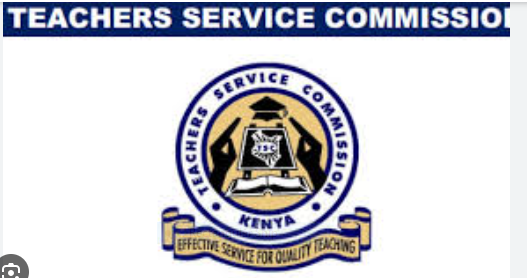
TSC Latest News
The education sector in Kenya is confronting a potential crisis following alarming revelations made by the Teachers Service Commission (TSC) concerning a substantial shortage of teachers in the public schools of the country. According to the Chief Executive Officer (CEO) of the TSC, Nancy Macharia, the commission is presently dealing with a staggering shortage of 98,281 teachers. The situation is further exacerbated by the inadequacy of qualified and trained teachers, primarily due to insufficient funding and budgetary allocations.
During her appearance before the National Assembly’s Constitutional Implementation Oversight Committee, Macharia provided a sobering account of the challenges facing the education sector, particularly in relation to teacher shortages. She informed the committee that the lack of adequate funds to recruit teachers has resulted in a staffing gap, which is adversely affecting the delivery of quality education to children. This shortage, she remarked, is hindering the realization of the constitutional right to education, as stipulated under Article 43 of Kenya’s Constitution.
“The shortage of teachers currently stands at 98,261, a figure that encompasses teachers for Junior Secondary Schools (JSS),” Macharia asserted. She also indicated that the shortage is anticipated to worsen in the following year with the expected introduction of senior schools. This is particularly alarming because the TSC has not been able to meet its target staffing levels since its establishment. Consequently, Macharia underscored the urgent requirement for increased budgetary allocations to address the escalating demand for qualified teachers within the system.
The committee members were also apprised of the adverse impacts that the teacher shortage is having on the implementation of the Competency-Based Curriculum (CBC). With the introduction of new learning areas under CBC, such as media technology, woodwork, jewelry and ornament making, sculpture, leather craft, marine and fisheries technology, general science, and indigenous languages, there has been a notable deficit of qualified teachers to handle these subjects. This, according to Macharia, has resulted in a scenario where schools are unable to offer the complete array of courses that are essential for student development under the new curriculum.
In addition to the teacher shortage, the CEO also expressed concerns regarding the rapid and often uncoordinated establishment of new schools without corresponding budgetary provisions for staffing. She highlighted the issue of schools being situated too close to one another, in certain instances sharing similar names, and without sufficient planning for teacher recruitment. Macharia proposed that one potential solution to this problem would be for the government to augment the budget for the recruitment of teachers to fulfill the staffing requirements of newly established schools.
Furthermore, she called for enhanced coordination among key stakeholders, including sponsors, investors, and politicians, to ensure that the establishment of new schools is well-organized and that existing schools are expanded in a manner that meets the educational needs of the population.
The committee, chaired by Runyenjes MP Karemba Muchangi, also noted that inadequate funding has impeded the advancement of teachers. As of December of the preceding year, merely 200,022 teachers became eligible for promotion after having completed three or more years in a specific grade.
However, this figure continues to increase each year as additional teachers satisfy the requisite criteria for promotion. The shortage of funding for promotions has resulted in dissatisfaction among numerous teachers who believe their career advancement is being obstructed by financial limitations within the TSC.
This matter was brought to attention by Tiaty MP William Kamket, who inquired about the recent promotion initiative and requested clarification on the criteria employed to promote teachers. Macharia clarified that the insufficiency of funding has complicated the commission’s ability to address these issues expeditiously.
Another significant issue discussed was the healthcare coverage for teachers. Committee members expressed apprehensions regarding the inability of teachers to obtain healthcare services, with many having to pay out-of-pocket for medical care.
Macharia elaborated that this situation, too, was a consequence of budget constraints. The TSC demands approximately KSh 54 billion to support the medical scheme for teachers; however, it is only allocated KSh 20 billion.
This deficit in funding has resulted in instances where teachers cannot access the healthcare services to which they are entitled, even though they are covered by the scheme. “The commission requires approximately KSh 54 billion for the medical scheme, but we are only allocated KSh 20 billion. That is why, at times, when teachers go to hospitals, they may not receive services, but it’s not because they are not covered. It’s simply due to a lack of budgetary allocation,” Macharia explained.
The committee also expressed concerns regarding the recent promotion of over 25,000 teachers, questioning the rationale behind promoting some newly graduated college teachers ahead of others who have spent years within the system.
Macharia clarified that the recruitment procedure considers localities, especially in arid and semi-arid regions (ASALs), where there is a significant shortage of teachers. In these areas, newly graduated teachers may be recruited to occupy vacancies in schools, sometimes even prior to experienced teachers awaiting promotions.
Committee chair Karemba Muchangi instructed the CEO to submit a comprehensive report on the distribution of teachers nationwide to provide greater clarity on this matter.
Another contentious issue raised during the meeting was the allegation that Macharia and the TSC had ceded the appointment of teachers to politicians, particularly pertaining to the irregular issuance of employment letters.
Matungu MP Oscar Nabulindo questioned why certain cabinet secretaries were distributing employment letters at political rallies, voicing concerns about the integrity of the recruitment process. In response, Macharia categorically denied the accusations, asserting that the TSC adheres to a transparent and merit-based recruitment process.
She clarified that the assertions were grounded in media reports and insisted that the TSC’s recruitment protocols are explicitly detailed on their official website.
“I read about these allegations in the papers. If you check our website, you will see how we carry out our recruitment process. I am concerned because these kinds of things give the TSC a very bad name,” Macharia said.

